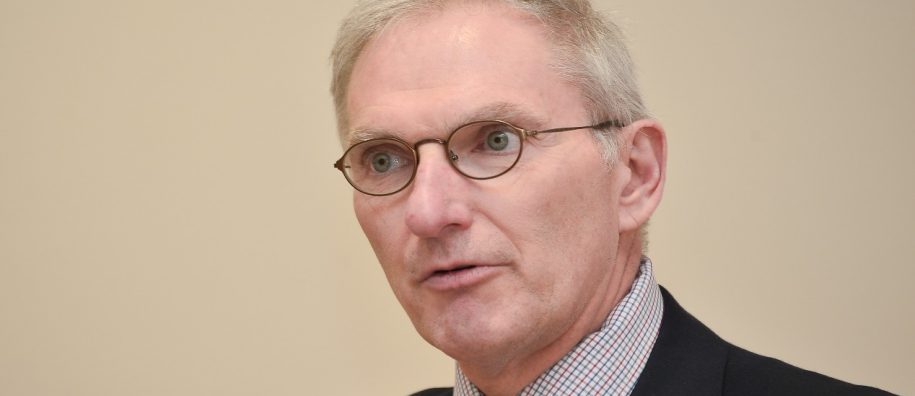
MRU LAB's Justice Laboratory member and U.S. Hamline University Prof. David Schultz says confusion within U.S. President Donald Trump's administration contributes to "ineffectiveness in foreign policy" and the result is a weakening of the U.S. on the international stage.
The shake-up and firing of employees, including U.S. Secretary of State Rex Tillerson, is a further sign of confusion within the administration, he said.
It is a further retreat from the soft policy defining American international strategy. The new result is a continued weakening of the U.S. on the international stage, especially dangerous as Russia and Vladimir Putin seem emboldened, explained the U.S professor. This contributes to ineffectiveness in U.S. foreign policy.
It is no surprise that Secretary of State Rex Tillerson is gone. He never seemed to have much support from Trump and in the last few months his position and status dramatically eroded. In part, this reflects Tillerson’s lack of diplomacy skills and also the fact that President Trump did not seem to view diplomacy as a major aspect of his administration. Evidence of that is that many State Department positions are unfilled even today and many careerists have departed.
Moreover, President Trump seems to prefer a more muscular, militaristic or hardpower aspect to foreign policy as opposed to the use of soft power. His administration was full of generals (for now). Thus, no surprise that Rex Tillerson is gone except to ask why it took so long, noted Schultz.
What will it mean now that Tillerson is leaving?
U.S. President Barack Obama was criticized for his pivot toward Asia and ignoring Europe, but in many ways this is what Trump has done so far and will continue to do as president. He has made China a major trade and economic enemy and North Korea is a major focus of conflict bordering on military action. There will be little change here with Mike Pompeo from the CIA taking over. In fact, he may complicate possible talks with North Korea, which will require the Chinese to cooperate.
How the new Secretary of State tries to push China, while also trying to engage North Korea in talks, will be interesting to watch. If he does not change his rhetoric toward China, one can expect that there will be increased tensions with China and perhaps more trade tariffs on China. Moreover, there is no indication that there will be a renewed focus on Europe and Russia.
Yes, the U.S. did issue new sanctions against Russia to punish it for its interference in its 2016 elections, but President Trump himself did not act. It was the foreign policy establishment.
While the foreign policy bureaucracy in the U.S. is powerful, President Trump seems to be ignoring it. This leaves open how effective it can be going forward. Rex Tillerson’s departure is not the only one. A week ago Gary Cohen, Trump’s chief economic advisor, left in protest of the steel and aluminum tariffs. He and Tillerson were free traders, President Trump is not.
Signs are the Trump administration is ready to start a trade war by pulling back on international agreements in the interests of pursuing U.S. economic nationalism. Look at how President Trump just prevented Broadcom, a Singapore-based chip maker, from purchasing Qualcomm, as an indication how nationalistic trade policy has become. It will also dominate U.S. Asia-Pacific foreign policy into the future of the new Secretary of State.
The free-traders, diplomats, and multilateralists have left the Trump administration. This suggests, for Asia and the rest of the world, a more confrontational U.S. foreign policy.
It is rumoured now that Trump’s national security advisor H.R. McMaster, another former military officer, is on the way out. John Kelly, his chief of staff and also former military officer, is probably also on his way out. Others may leave.
An administration, once full of generals suggested a presidency dominated by hard or military power, except the generals did not agree with President Trump’s whims. They came from the foreign policy establishment that Trump is rejecting. He now seems ready to pick those who have no experience in foreign policy–people just like him.
Where the Trump administration seems headed is toward foreign policy people who know even less than him, having neither military nor diplomatic skills. These people too, will not last long, further contributing to the ineffectiveness of the Trump administration internationally.